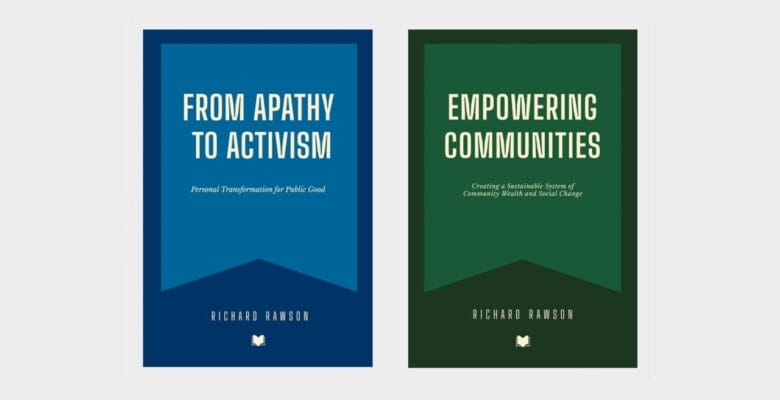When I wrote From Apathy to Activism and Empowering Communities, I thought I was exploring two distinct paths to societal change:
➡️ One focused on individual action
➡️ The other on structural, community-wide change
Looking back, I realize they are deeply connected. Meaningful change happens when both approaches work in tandem.
🔥 Why Personal Transformation Matters
Change begins with a spark—often a moment of personal clarity.
People move from apathy to activism not because someone told them to care, but because something they’ve seen or experienced compels them to act.
In From Apathy to Activism, I focused on this personal shift:
- The moment when disillusionment turns into engagement
- When passive observation becomes meaningful action
Consider Greta Thunberg’s story: One teenager, starting with a solo protest outside parliament, sparked a global movement. Her personal awakening—driven by frustration and fear for the planet’s future—led to a wave of activism that now influences governments and corporations worldwide.
But Greta’s story also highlights an important truth: personal activism must be met with systemic action to create lasting change.
🏛️ Why Systemic Change Matters
This interplay between personal awakening and structural change isn’t new. We’ve seen it throughout history—from climate activism to civil rights movements.
The civil rights movement is a powerful example of how personal action leads to systemic reform. It began with individuals like Rosa Parks and Martin Luther King Jr. taking a stand. But it became lasting change because it was embedded into laws and policies that reshaped society.
The Civil Rights Act of 1964 and the Voting Rights Act of 1965 weren’t just symbolic victories—they fundamentally changed the systems that had long upheld racial inequality.
Without those structural changes, individual protests might have remained isolated moments of defiance. Instead, they became part of a broader movement that reshaped society for future generations.
🔄 Where Personal and Systemic Change Meet
What I’ve learned from reflecting on both books is that personal and systemic change aren’t separate ideas—they’re deeply intertwined.
Personal transformation drives engagement.
Systemic change sustains it.
Real change happens when individuals feel empowered to act—and when communities and systems are designed to support those actions.
At the same time, it’s important to recognize that systems can either enable or stifle personal action. Without access to voting, education, healthcare, or fair wages, people often lack the tools they need to turn their convictions into meaningful progress.
Systems can be barriers—or they can be enablers. The difference depends on how they’re designed and who they’re designed to serve.
⚖️ A Final Thought
If From Apathy to Activism is about finding your voice, Empowering Communities is about creating structures that amplify it.
One sparks action.
The other sustains it.
But progress is never guaranteed.
Many of the gains achieved through personal activism and systemic reform—from civil rights to environmental protections—are now being threatened by changing societal attitudes, political climates, and policy decisions.
This underscores a crucial point: the work is never done.
Personal engagement remains vital, but so does the ongoing effort to strengthen the systems that support equality, justice, and sustainability.
Real change starts with personal awakening—but it lasts only when we continually defend and evolve the systems we rely on.
We need both to move from moments of action to movements that endure—and to ensure that progress continues for future generations.
